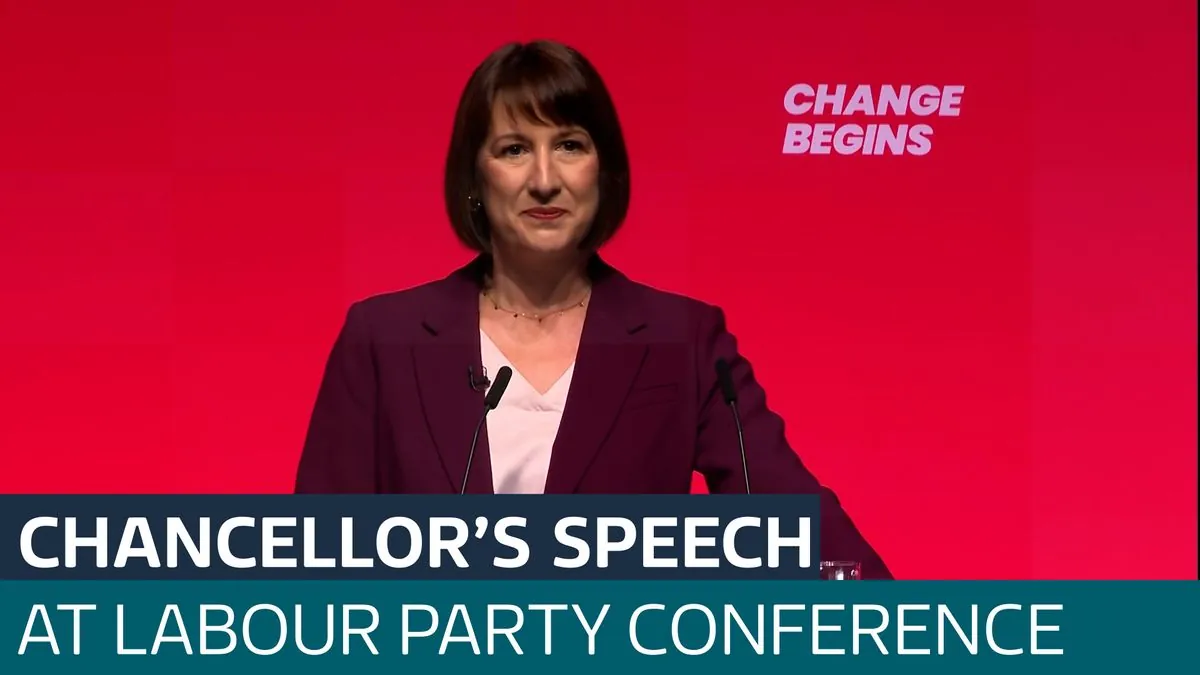UK Chancellor Mulls Debt Rule Overhaul for £50bn Budget Boost
Rachel Reeves considers redefining debt calculations to potentially free up £50bn in her first Budget. The move could allow for increased investment spending while maintaining fiscal responsibility.

Rachel Reeves, the UK's Chancellor of the Exchequer, is contemplating a significant modification to Britain's debt rules that could potentially unlock £50 billion for spending in her inaugural Budget. This development comes as Reeves provided the clearest indication yet of her intention to adjust the fiscal framework.
At a recent Labour Party Conference event hosted by the Institute for Public Policy Research (IPPR), Reeves stated:
"We will set out the details of the fiscal rules at the Budget. But as I said, it is important that we count the benefits of public investment and not just the costs of it."
Reeves is considering altering the debt calculation method to account for investment expenditure. This approach aligns with practices in other European nations like France and Germany, which exclude state-owned investment from their debt metrics. The International Monetary Fund (IMF) also considers this standard practice.
The Chancellor currently operates under two self-imposed borrowing objectives. The first allows borrowing for investment while aiming to balance day-to-day spending within five years. The second mandates debt reduction after five years. Reeves has committed to maintaining the second goal but is exploring a shift in the debt measure.

The proposed measure, known as public sector net financial liabilities, is already forecast by the Office for Budget Responsibility (OBR) in its biannual public finance assessments. March projections indicated that targeting this measure would result in debt as a share of GDP decreasing annually to 78.7% in 2028-29 from 80.6% in 2027-28, equating to over £50 billion in cash terms.
This contrasts with the previous Chancellor Jeremy Hunt's headroom of £8.9 billion under existing rules, which project debt falling marginally from 93.2% to 92.9% of GDP in the same period. The proposed change could also enable Reeves to borrow £7.3 billion for the Labour Party's proposed National Wealth Fund.
The Tony Blair Institute, an influential think tank, has advocated for this fiscal rule revision and is expected to renew its call ahead of the Budget. However, a Whitehall source cautioned that while the measure is under consideration, it is not yet finalized.
Reeves has warned of "tough decisions" to address what she claims is a £22 billion deficit inherited from the Conservative government. She emphasized the challenge of balancing day-to-day expenditure with tax receipts, given the current economic inheritance.
The Institute for Fiscal Studies previously calculated that Reeves' goal of balancing the current budget was only met by £13.9 billion based on the OBR's March forecast. This constraint will likely continue to limit spending options, even with the potential rule changes.
It's worth noting that the £50 billion debt headroom could be reduced if Reeves chooses to exclude the Bank of England's quantitative easing and loan programs from the measure, as the current rules do. This decision will be crucial in determining the actual fiscal space available for the government's economic plans.
As the UK navigates its economic future, the potential rewriting of debt rules represents a significant shift in fiscal policy approach. It aims to balance the need for investment with maintaining financial stability, a challenge that will shape the country's economic landscape in the coming years.


































